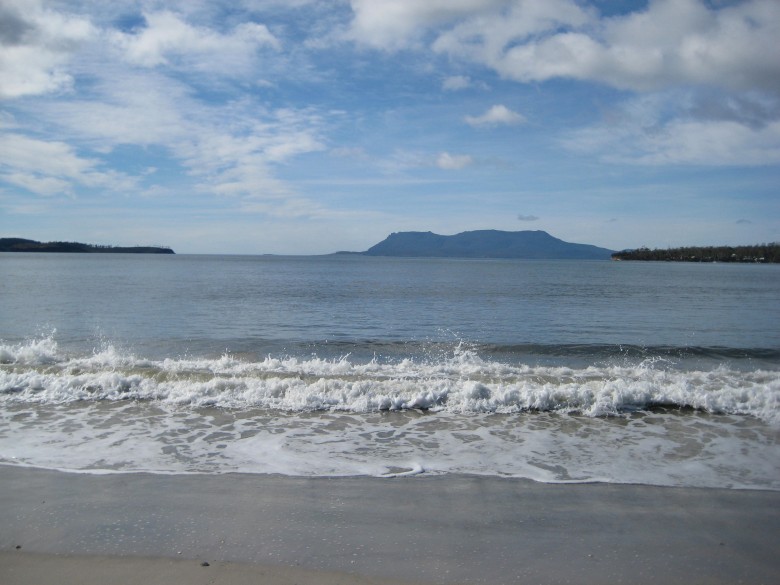On the wrong tack…
‘A tack as a part of the tacking maneuver; in which a sailing boat turns its bow through the wind’ (wikipedia)
It must be evident to any who read this blog that I have a predilection for life by the sea. That I love the ocean, being in it, on it or under it.
I was reared close by the sea and I was on boats before I could even walk. So it stands to reason that I’m going to have the odd nautical reference in my writing. Oddly The Stumpwork Robe, my first novel, has not a single reference to the sea; except when Adelina is held prisoner in Mevagavinney in Eirie and stares out from her window toward the seawall.
However in The Last Stitch, Phelim sails in a ocean storm and punts through the fens and Lhiannon paddles a curious skin-covered vessel over the ocean. In Glass Flowers, Finnian and Lalita journey in a gondola and a barge. But in Shifu Cloth, so far there is nothing written about vessels and the sea… yet!
And in Gisborne?
Well, this is where I came unstuck. Gisborne… the novel would be tagged as historical fantasy and historical romance for Amazon Kindle. The word historical requires a certain diligence in research. Guy and Ysabel are in the process of sailing from Calais to the English coast and I needed to know what sort of vessel they would be sailing on in the twelfth century. I had thought it would be a cog and began to research the vessel, coming across a wonderfully informative site on the net. I asked questions and found that the cog was not correct. In addition, I had Ysabel in a covered hold which was also incorrect. Not only that, I have since been told by the specialist on the site that if the timbers were creaking, he himself would jump overboard as the vessel would be in dire straits. To a point I disagree on that one with him, purely from my own experience. But it would seem my memories of sensations on vessels on the ocean are just that… memories. And apparently not at all technically correct.
Not long ago, I read a blog on historical accuracy, (a reference I have unfortunately lost as I changed over computers) and the blessing in the content of the interview was that a little information is enough. But it must be correct.
Which is why I have been very open and honest from the very beginning in saying that Gisborne is as yet unresearched and unedited and is just a first (rough) draft. I need to know if lemons were available to noble houses in the twelfth century, if soap was perfumed. I need to know about clothes, saddlery, land ownership, religious ideology, the Crusades, mercenary armies. And a hundred other things.
Right now, Guy and Ysabel have left the Marolingian and I can leave my limited twelfth century nautical knowledge behind. Instead, I must move on to the technical detail of a noblewoman’s bath and toilette in the twefth century.
Ah… it never ends.
***
PS: I wrote this blog in pencil in my little red notebook whilst I was on the beach in between swims.
When I got home,a song called Knee Deep by the Zac Brown Band was playing on the radio and I thought how apt, given I was wondering when the tide would touch my toes and that I live in the closest thing to Paradise this side of Heaven. Whilst it’s not the Bahamas, its pretty damned good!




I can’t tell you how happy I am that you are researching a 12th century noblewoman’s bath and toilette…because that means Ysabel gets to wash her hair! YAY!
Gotta laugh Ann Marie!
For armors/ships/armies/tournaments, etc. I recommend the Osprey books. They’re very technical, but when they explained to me the Third Crusade it was a welcome help to the Richard of Holy Trinity chronicle…
For more feminine stuff… I must say that in the Chanson de Gestes I’ve found many descriptions of what was probably daily routine for knights and ladies, including sex and sleeping habits, so you might want to check them! 😉
I’m just starting to dig from the screenplay format to the novel… and it’s just like your first draft moving to the second! 😀
Happy writing!
Thanks Barb. Going to try and get into Chanson de Gestes this week.
Wow, sounds like you’ve got plenty to do … Maybe the phrase should be “a writer’s research is never done!” Good luck with it 🙂
*Settles down to wait for a post on the vintage pattern cupboard!* 😉
That’s so true, Clare. Which is why I opt to write the story in my head first and then flesh out the detail in the second draft. Otherwise it all gets lost!
What a great point–should be heeded more often, I think–that there doesn’t need to be much historical detail, but it should be right. Brilliant. I really enjoy research–sometimes little things you turn up there while looking to merely fact check turn into great elements in a story in and of themselves. Good luck and have fun 🙂
I’m furious that I have lost the link, but the gist of it is that the small historical detail, which must of course be correct, doesn’t over load the reader but it gives them confidence in the authenticity of the story.
This just made me rather envious. Actually, I’m writing about a fantasy version of late Roman naval activity now in Dark Empress, and have been researching the odd nautical term and learning about the Byzantine ‘Dromon’. Good stuff. I love to sail and swim, but we are in the bitter cold north and roughly half way between two coasts…
Was it the song or the photos that made you envious? Because I would really just say the tables have turned just for a minute. When I think of your touring through castles, ruins, forests, I sigh and cry. The freedom to dash to the Bodleian for a few days if you so desire! My God, I’d never sell enough titles to make the cost of such a research trip from Australia worthwhile. Unless I was Ken Follett!
Mesmered, for an easy relaxed way of looking in on the late twelfth century, over a glass of wine, perhaps, at the end of a busy day, might I tell you about two novels by the UK author, Elizabeth Chadwick– “The Greatest Knight” and “The Scarlet Lion”.? They are based on the real life story of William Marshall, who was a favoured courtier of the time, cover the years 1167 to 1219, which would include the “Gisborne” time period, and are very well-researched.
Obviously you want to do your own research, but these are pleasant entertainment and may throw up one or two ideas of avenues for investigation. I think there are some baths in them, too
Little bit of divine synchronicity there, Giselle. I have just been reading posts on Elisabeth’s blog this week and have bookmarked the novels. William Marshall features so significantly in even the most basic research of the timeframe.
It’s good to hear from someone whose advice ! trust that she is indeed worth reading!
Want to affirm, as a trained historian who really struggles these days to read historical fiction, that it’s exactly right that you don’t need tons and tons of historical detail, but whatever you include just *has* to be right. I’m happy to read all kinds of very bizarre RH fanfic, but the second the author has someone going to the bathroom in Nottingham Castle, or reading a book in bed, or eating potatoes, I experience a severe pain right behind my eyes. I’ll take just about anything about the sea because I know nothing about it, but you have to expect that anyone who picks up your work might — indeed might pick it up precisely because they love fictions set in that period of history. Not to discourage you, all this, but to encourage you in your attempt both to cut out unnecessary historical detail, but to get what you put in correct.
Dear Servetus,
I agree with you entirely. My favourite historical author is the sadly deceased Dorothy Dunnett. Her work is layered with exquisite research. It verges on dense and yet it is that very detail which pulls me right into the narrative. I ‘feel’ as if I am there in the 15th and 16th centuries. And of course the ‘story’ she tells is simply brilliant.
I’ve been researching baths and it appears a number of castles (Leeds Castle is famous) and monasteries actually had taps and running water and rooms that could be classified as baths. No doubt this grew out of the sophisticated Roman occupation, but I was surprised to find that medieval nobles were not the great unwashed but over-scented folk I thought them to be. Even the peasants would wash their hands regularly and bathe in the rivers in summer.
Your comment in respect of anachronistic references was perfect. It is why i will go back through that rough draft and pull out anything that disturbs me. For instance, Guy has been known to smell of lemons. But could he? Had lemons reached England (I suspect they might through the Roman occupation) and would they have been so wasteful as to use them for fragrance and not for essentials like cooking? I suspect not. Unless there was a largesse. It seems to me that herbs were by far the most used for fragrance and cleanliness.
When I studied medieval history at university, sadly we did not spend time on the social traditions of the time. My study was filled with names like Abelard, the Venerable Bede, Bernard of Clairvaux. At the time they were threads in the most glorious tapestry and drew me into a world I would forever find captivating. Which is why I love historical fiction and particularly 15th and 16th century hist fict.
Thanks so much for your comment and far from terrifying me you have encouraged me.
(And there we get to the cultural issues: an American thinks something fairly specific when she hears the word “bathroom,” and if fic writers said that people were going to make use of a bath, that would be fine with me 🙂 )
My scholarly specialty is the 16th c., and I did study social history, though I don’t do that myself, so if you ever get to writing in that period specifically I’ll have my ears perked up!
I consider myself warned, Servetus, and shall endeavour not to offend should I ever move into that time frame. Fortunately at the minute I am stuck immutably in the twelfth century! Best wishes.